Michelle L. Levigne's Blog, page 167
March 17, 2014
Off the Bookshelf: SWEETHEART BRIDE by Lenoa Worth
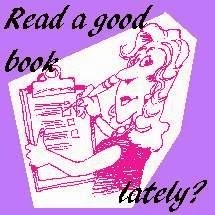 Are you stunned? Shocked? I'm actually reading and reporting on a book for FUN!
Are you stunned? Shocked? I'm actually reading and reporting on a book for FUN!As I've progressed in my writing journey and my skills and pickiness levels grow, I've grown away from category romance. But there are some authors I can always depend on for a good read that doesn't feel contrived and two-dimensional.
Lenora Worth is one of those category romance authors. I especially like the fact that she sets up a family and community that you get to know a little more with each book. SWEETHEART BRIDE starts at the wedding of Alma and Julien -- probably need to find that book and read their story -- and introduces the next sister, Brenna, and the wounded, doubting young man who will help her heal as she helps him heal, Nick.
He is into restoration of buildings, while Brenna is an artist and works with art. Her skills are just what he needs to fulfill the requirements of his mysterious employer (who I'm hoping will show up in the next book and fall in love with sister #3, Callie!). Nick has secrets and wounds that need healing, and Brenna is aching from a broken engagement to a man who definitely wasn't worthy of her. They have to fight for their love -- fighting against themselves. Now, that's a good story. Of course, being trapped in a halfway restored mansion in one of Louisiana's hurricanes helps ...
Published on March 17, 2014 03:00
March 15, 2014
SPOTLIGHT SATURDAY: Reflections from Beyond, by CJ Golden
 Today's SPOTLIGHT is on a non-fiction book by a fellow author at Uncial Press: CJ Golden.
Today's SPOTLIGHT is on a non-fiction book by a fellow author at Uncial Press: CJ Golden.Reflections From Beyond:Sharing a Message of Hope, Peace and Kindness
Tracy LaCroix is a Virginia man with an amazing story to share. After his heart stopped beating for an hour and a half, he came back spiritually renewed, fortified with an inspirational message of hope and love.CJ Golden—author of Tao of the Defiant Woman and Tao-Girls Rule!, is from Newtown, Connecticut, a town still searching for healing from an unimaginable tragedy.Though hundreds of miles separate their homes, a series of circumstances bring these two individuals together—and the coincidences are too strong to ignore.The result is Golden’s inspirational biography Reflections from Beyond: Sharing a Message of Hope, Peace and Kindness, the story of the near-death experience that changed Tracy’s life and is sure to touch countless others, as well.

Together, author and subject share powerful messages for anyone who is facing death, whether it is through the horrors of tragedy or coming to terms with the inevitability of their own passing. Through Tracy’s amazing journey, you’ll experience the peace and beauty that lie just beyond this physical plane–regardless of religion or personal spiritual beliefs.Healing Hearts of Hospice of Western Connecticut will receive a $1.00 donation for every book sold so that they can continue to help the grieving families in Newtown and the surrounding area.
CJ Golden is a writer and motivational speaker from Newtown, Connecticut. Through her first two books, Tao of the Defiant Woman and Tao-Girls Rule!, she has been able to indulge in her passion for helping people, sharing her wisdom with women and girls.Now, by sharing the extraordinary journey of Tracy LaCroix in Reflections from Beyond, she is relishing the opportunity to spread his message of hope, peace, and kindness with the world. She considers meeting him to be as life altering for her as his journey was for him.
Visit CJ Golden online at www.reflectionsfrombeyond.com and www.taogirl.com.
Published on March 15, 2014 03:00
March 13, 2014
Letters to Kel: HOW DOES HE KNOW THAT? Telepathy in books that aren't SF or fantasy or horror.
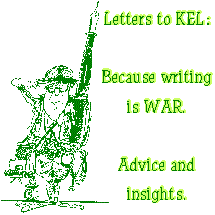 I'll discuss POV and the dreaded phenomenon of head-hopping in another blog. Today, I'm going to gripe about something I notice in books by beginners as well as people who should know better!
I'll discuss POV and the dreaded phenomenon of head-hopping in another blog. Today, I'm going to gripe about something I notice in books by beginners as well as people who should know better!Telepathy.
"Huh?" you may ask.
A very simple, crude illustration is a scene where the POV character is Tom -- POV means the character whose eyes you see the scene through, whose thoughts you share, whose sensory impressions you share. Usually (not always -- there are always exceptions) fiction is told in past tense, through the eyes of ONE narrator/POV character at a time. Yes, there are some writers who tell you what's going on in EVERYONE's head at the same time, but I find such writers really, really confusing. They seem to think they're God ...
Tom occupied his time in the waiting room watching Gregory, who got hungrier the longer he waited and made things worse by thinking about nearby restaurants and their menus.
Excuse me, HOW does Tom know Gregory is hungry and is thinking about nearby restaurants? Without being able to read Gregory's mind? Has Gregory spoken aloud, has his stomach grumbled, has he started flipping through the phone book and saying the names of restaurants aloud? How does Tom KNOW what Gregory is thinking if he's not a telepath or a wizard?
Another illustration: Sharon was busy with the Monday baking when George walked in, fuming about the fight he had last week with Rick. He kicked the cabinet, making the flour canister fall down on his foot and break two toe bones.
How does Sharon know George is fuming about Rick, and two bones are broken? For that matter, if George is really the POV character, how does HE know he has two broken bones? Is he a doctor, so he knows just from the shrieking of pain in his foot that he has broken bones instead of just bruised and bleeding flesh? (And why isn't he wearing shoes, anyway? )
Always keep the impressions, the thoughts, the emotions in the perspective of the person who is showing the reader the scene. Unless you're reading science fiction or fantasy or horror, where people have the ability to either broadcast whatever they're thinking and feeling, or invade the thoughts of other people so they know what is going through their minds ... ALWAYS ask yourself, and your POV character: How does he KNOW that about the other character?
As a side note, it's redundant to say, "He thought to himself." Who ELSE is he going to think to, unless he's a telepath who can broadcast his thoughts to other people, or is in a Vulcan mind-link with someone? Just leave it at "He thought," and save yourself a few words. It adds up!
Published on March 13, 2014 03:00
March 10, 2014
Off the Bookshelf: WRITING CONVERSATIONS: Spend 365 Days with Your Favorite Authors ... by Cherie K. Miller
 Okay, big confession time: When I picked up this book on Kindle -- either very inexpensive/on sale, or maybe even free at the time (it's been so long since I went on a book-ordering frenzy when I first got my iPad...) I thought this book was about writing conversation, as in writing dialogue.
Okay, big confession time: When I picked up this book on Kindle -- either very inexpensive/on sale, or maybe even free at the time (it's been so long since I went on a book-ordering frenzy when I first got my iPad...) I thought this book was about writing conversation, as in writing dialogue.DUH!
This is MUCH more useful.
This is a collection of bits of wisdom from published authors, advice, sharing of their experiences, lessons learned, glimpses into their approach to writing. Conversations ABOUT writing. And what's really useful is that there are several indexes, so if you're looking for a specific topic, a specific author, or even reference to a specific book, you can find it.
Niftily (no, that isn't a word, but writers are allowed to make up words when necessary!) these bits of wisdom and help are divided up kind of like those page-a-day calendars, so on January 1, you get a bit of wisdom. Then move on to January 2. On through the year. Kind of like a writer's morning devotions. Of course, I devoured it in 5 days, but I'll be back. Pick it up. You never know when you'll need a bit of encouragement, a new bit of insight into a problem you're facing in your writing process, or a glimpse into how your favorite author thinks.
Published on March 10, 2014 03:00
March 8, 2014
SPOTLIGHT SATURDAY: Second Act for Carrie Armstrong, by Deborah Nolan
 Today's Spotlight is on a book by a fellow author at Desert Breeze Publishing, Deborah Nolan.
Today's Spotlight is on a book by a fellow author at Desert Breeze Publishing, Deborah Nolan.SECOND ACT FOR CARRIE ARMSTRONG
Carrie Armstrong is a single mother of four school aged children. She needs her job as a U.S. Attorney in New York City to support them.Ian Gordon is an ambitious loner brought in to head up an investigation of the State’s child protection agency.
Ian offers Carrie a spot on his team. She wants to refuse because of the time away from her children, but she can’t say no and keep her job.
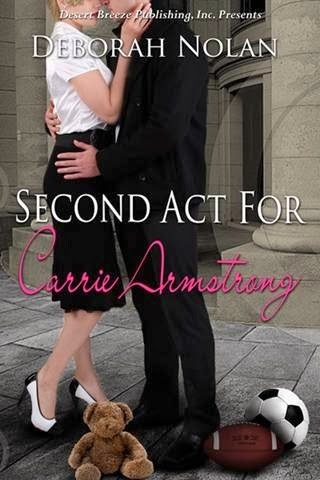
Sparks fly when the two start working together. Ian is drawn into Carrie’s suburban world and family drama. Carrie uncovers the awful truth about the State agency. Against this background of suburban life and political intrigue, the two fall headlong into love.
In addition to being a writer, Deborah Nolan is a lawyer. A former Deputy Attorney General in N.J., representing their child protection agency, she now lives in Manhattan and the Hudson Valley, and represents children in Columbia County. Her romantic suspenses usually involve courthouses and are often based in suburban N.J. where she lived and raised her children.
Published on March 08, 2014 03:30
March 6, 2014
Letters to Kel: CONSISTENCY!
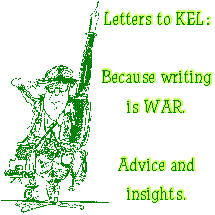 If you haven't picked this up by now, I make my living as a freelance editor. That means several different publishers send me chapters or entire books that they are going to publish, and my job is to proofread, to make sure the books fit the publisher's guidelines and standards, to fix the mechanics (grammar, spelling, punctuation, POV, verb tense) and ask questions when there are holes in the story.
If you haven't picked this up by now, I make my living as a freelance editor. That means several different publishers send me chapters or entire books that they are going to publish, and my job is to proofread, to make sure the books fit the publisher's guidelines and standards, to fix the mechanics (grammar, spelling, punctuation, POV, verb tense) and ask questions when there are holes in the story.One of my big pet peeves, maybe the biggest one, is CONSISTENCY.
Character names: I edited a YA book where, on the first page, one character was referred to as Mom, Mummy, Mother, Timmy's mother, Mrs. Wilson, Grace Wilson ... see where I'm going? If the reader isn't paying attention, she'll think there are FIVE different characters on the page with Timmy. Uh, wouldn't that be confusing to you? I'm not saying that other characters in the story can't refer to that person by different names -- that reflects their relationship with the character. Timmy sure wouldn't call his mother "Mrs. Wilson" or "Grace," but wouldn't he refer to her by one name? He wouldn't switch back and forth between "Mom," "Mummy," and "Mother," would he? You, as narrator, should refer to the character by the same name, so readers know all the time who you're referring to. And stay consistent through the whole book. I edited another book where a character was referred to as Dr. Smithers for the first three-quarters of the book -- then all of a sudden the narrator started talking about Andrew. Who was Andrew? When did he enter the story? It took three pages of wondering before another character referred to Andrew as Dr. Andrew Smithers, when it finally clicked.
DON'T CONFUSE YOUR READERS!
Another consistency issue I face a lot deals with mechanics, and especially editing books by Christian authors. In one paragraph, they reference a Bible verse as 2 Corinthians 6:12 -- a paragraph later they write the reference as II Peter 1:5 -- then a paragraph later the references is the book of Daniel, second chapter, verse twelve. Or the author puts the Bible verse in italics and indents from both sides with the reference after the verse one-third of the time, and then the rest of the time leaves off the italics or the indents or both, and sometimes puts the reference before the verse.
See the inconsistencies there? Decide on the format you're going to use for referencing things like Bible verses, or books and authors you're quoting from, and STICK WITH IT. Say you quote from an author, and directly after the quote you insert a footnote with the bibliography information in it. Fine. The next time you quote someone, don't put that bibliography info in parentheses. BE CONSISTENT. Either all footnotes, or all parentheses.
Another issue: Capitalizing pronouns for God. I prefer to capitalize, as a measure of respect. He, Him, His, etc. Too many times when I'm editing someone, they start out lowercasing the pronouns for God, then one chapter is capitalized, then they go back to lowercase. Usually when that happens I stick with the formatting the book started out with. But what do I do when the author starts out with both capitalization and lowercasing in the same paragraph -- or even the same sentence? Usually when that happens, I tell the author: Be consistent. I can't decide what the majority is, so YOU have to decide and make the corrections. I can just imagine they don't like that.
When you're being published by a traditional publisher, there are standards you have to follow. Some publishers don't like sentences that start with conjunctions, or a publisher will insist that all pronouns referencing God be capitalized, and another refuses to allow that, and another publisher wants 1 and 2 in front of Peter, Corinthians, Thessalonians, etc., while another insists on I and II. That's fine -- you follow the rules, and if you don't want to follow the rules, get another publisher.
But in self-publishing ... YOU are the publisher. You establish the standards. Once the mechanics are taken care of, it's all up to you. But PLEASE be CONSISTENT. As someone once said, "It's all right if you're wrong, as long as you're consistently wrong." In fact, I think people are less likely to notice the silly mistakes if you don't keep switching back and forth.
Make sense?
Published on March 06, 2014 03:00
March 3, 2014
Off the Bookshelf: HOW I ARE BECOMED A VERY MUCH GOODER AUTHOR, by Sevastian Winters
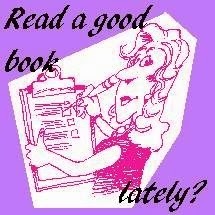 Uh, yeah, that IS the title of the book.
Uh, yeah, that IS the title of the book.And yeah, this IS a book about becoming a better -- gooder -- writer.
It catches your attention, doesn't it?
That's the point -- and one of the many lessons, sometimes harsh, but very necessary, that Winters conveys in this book.
The subtitle says it all: On the BUSINESS of Writing, Editing, Publishing and Promoting.
If you want to "make it" as an author, that means getting people to read your books. It means writing books people want to read. It means making sure people know your name and are interested enough to give you a chance -- and then making sure that they can't put down the book once they start reading.
Warning: You'll wince in places at his language, his assessment of the true talent of popular authors, and the attitudes some people have toward other genres and approaches to writing. That's okay -- he's conveying what works for him, what he has learned in his years of experience and struggling. Like I tell people regarding other writing books: Take what works for you, don't let anyone pressure you into doing things their way, and throw out what doesn't apply to you.
But read this book. You might find that "ah ha!" moment you've been hunting for.
Published on March 03, 2014 03:00
March 1, 2014
SPOTLIGHT SATURDAY: 375 Dinners on a Budget, by Cynthia MacGregor
 Today's SPOTLIGHT is on a helpful, useful, and timely (hey, we're going into tax season, so everybody is thinking about saving money!) book by a fellow author from Uncial Press: Cynthia MacGregor
Today's SPOTLIGHT is on a helpful, useful, and timely (hey, we're going into tax season, so everybody is thinking about saving money!) book by a fellow author from Uncial Press: Cynthia MacGregor375 DINNERS ON A BUDGET
Publisher: Familius
“Dinner on a budget” does not have to mean Hamburger Helper! You can cook delicious, nutritious, and affordablemeals that you and those you cook for will love. Break the boredom without breaking the bank.
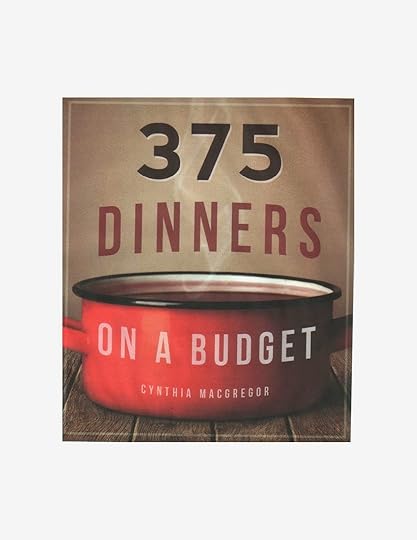 With Cynthia MacGregor's new cookbook, she proves that you can easily prepare and eat healthy, economical, and varied meals that are delicious even while they save you money. Using mostly fresh and frozen nutritional and affordable foods, everyday recipes emerge that include both family fare that kids will love and exotic recipes for special occasions. She once again proves that any novice can master the cooking skills needed to make dinners both enjoyable and affordable. Bess W. Metcalf - The Sneaky Kitchen. http://sneakykitchen.com
With Cynthia MacGregor's new cookbook, she proves that you can easily prepare and eat healthy, economical, and varied meals that are delicious even while they save you money. Using mostly fresh and frozen nutritional and affordable foods, everyday recipes emerge that include both family fare that kids will love and exotic recipes for special occasions. She once again proves that any novice can master the cooking skills needed to make dinners both enjoyable and affordable. Bess W. Metcalf - The Sneaky Kitchen. http://sneakykitchen.comProlific author Cynthia MacGregor has over 100 published books to her credit, including seven other cookbooks. Cooking is one of her hobbies, and she shares her cooking pleasures with her readers. A full-time freelance writer and editor, Cynthia also ghostwrites for others, writes business materials, edits books, magazines, web copy, and other materials, and loves every minute of it. She has also written roughly a dozen one-act plays, all but one of which have been produced by a community theatre group in Palm Springs, Florida, where she lives. For two seasons, Cynthia produced and hosted the TV show Solo Parenting, which aired on WHDT, serving South Florida.
An absolute workaholic, Cynthia works seven days a week and often puts in 12-hour days. She loves her life and says, “There is no one in the world I’d want to trade lives with.” Visit her website at www.cynthiamacgregor.com.Where to buy the book: http://www.familius.com/375-dinners-on-a-budget or Amazon
Published on March 01, 2014 03:00
February 27, 2014
Letters to KEL: YOU GOTTA HAVE A PLAN
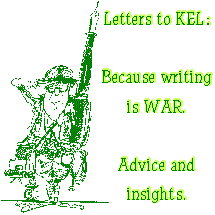 Another simple, nifty little writing book to recommend to you.
Another simple, nifty little writing book to recommend to you.Why?
Because it gives you templates, because it doesn't cover the entire gamut of what it means to be a writer, and because you NEED to know what this author is talking about.
SO YOU WANT TO WRITE A NOVEL, by J.P. Kurzitza. I got it as an e-book from Amazon. Short and easy to read.
The author deals with a very important part of writing your novel: the PLAN. You have to have some idea where you're going, what you want to do, and what has to happen at various points in your novel to keep the action moving forward. He includes essential questions you need to ask yourself before you start writing -- or, questions that must be answered before you send that book off to be published, or else your readers will be very upset with you.
For you pantsers out there, who break out in hives at the mere thought of that dreaded 7-letter word (outline!), you can use the templates included in the book as checklists after you've written the book, to see if you've provided the steps the author recommends. There are three templates, depending on the kind of story you want to write.
Template #1: Victories and Defeats
Template #2: Twists and Turns
Template #3: The Tragic Hero/The Absent Antagonist/Three Strikes
Good building blocks. Look for the book. Apply what works, and as I keep saying -- throw out what doesn't work for YOU.
Published on February 27, 2014 03:00
February 24, 2014
Off the Bookshelf: RIVET YOUR READERS WITH DEEP POINT OF VIEW by Jill Elizabeth Nelson
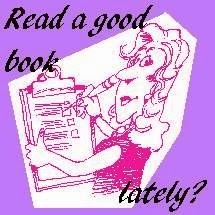 Short and sweet and hard to beat.
Short and sweet and hard to beat.Point of View -- POV for those of us trying to write fiction -- is one of the big tripping points for a lot of people. I'm not talking about head-hopping in the middle of a paragraph, or even forgetting who the POV character is and switching from third person to first person in the middle of a scene (although such people should be SHOT!).
What the hey-yah is DEEP POV?
In this nicely lucid, clear, concise and readable little book, Nelson gives examples and exercises with each chapter. (Yeah, I know -- I thought we got away from homework when we got out of Senior English!) The hard and ugly truth is that we learn best through application, through DOING.
Nelson shows the subtle differences that take a sentence into deep POV, how to identify and eliminate the little authorial intrusions that mean the difference between "telling" and "showing," and help your readers really get inside the POV character's head instead of just sitting on her or his shoulder and watching what's going on.
 I think when I picked it up, RIVET YOUR READERS WITH DEEP POINT OF VIEW was a free Kindle download. Might still be -- don't quote me on it. Look for it. It's well worth the short time you'll spend reading it -- and you'll want to refer to it regularly, just to brush up on your technique.
I think when I picked it up, RIVET YOUR READERS WITH DEEP POINT OF VIEW was a free Kindle download. Might still be -- don't quote me on it. Look for it. It's well worth the short time you'll spend reading it -- and you'll want to refer to it regularly, just to brush up on your technique.*****
TODAY! Cyber Launch Party for KATHRYN, Quarry Hall Book 3.
Want to chat, ask questions, learn some inside information ... maybe win a prize?
Come on over to www.CyberLaunchParty.blogspot.com today, Monday, February 24. The fun is going on NOW and will last most of the day.
Published on February 24, 2014 03:00



